
Research robots and devices are mainly designed to collect or analyze data. They may be used to assess the efficiency of robotics software or newly developed appliances.
Research robots are also used in a wide range of studies involving human interaction, movement and locomotion.
Other robots are specifically designed in aiding research in difficult environments such as deep water, extreme cold or outer space.
Picture: Aldebaran Assessing acceptance of assistive social robots by aging adults
Assessing acceptance of assistive social robots by aging adults
A Dutch robotics survey is trying to determine how willing elderly people are to have household help from robots. Decreasing funds and rising costs in healthcare could be offset by using patient care robots. This survey can be used in the future to develop…
 IROMEC
IROMEC
The Dutch Robotics project IROMEC was created with the goal of functioning as a social mediator to cover all the areas that children with disabilities do normally not have access to. This will help them have new opportunities, prevent isolation and let…
 KSERA
KSERA
The KSERA robotics project, is a research project about service robots for the elderly. The main goal of this project is to develop a Socially Assistive Robot that can help the elderly in their daily lives, especially people with Chronic Obstructive…
 Lopes
Lopes
The Dutch Robotics project LOPES was designed to help people who have had a stroke regain leg function and learn to walk again. The person walks on a treadmill the robot is attached to. Although there are still bugs to be worked out, LOPES has provided…
 DelFFi
DelFFi
Within the Delfi program, DelFFi is the third satellite project. The project aims at utilizing innovative concepts, reliable methodologies and modern technologies to support the QB50 mission, which is a unique mission based on a global network of fifty…
 FireSwarm
FireSwarm
FireSwarm- a Dutch research project- strives to develop a swarm of affordable, autonomous and small unmanned aerial vehicles that can be used to monitor and detect fire in large natural areas, specifically at the Noor-Holland dune areas.
 Distributed Estimation and Control for Robotic Networks
Distributed Estimation and Control for Robotic Networks
Distributed estimation and control for robotic networks is a project that emphasizes on the development of methodology and algorithm for multi-agent control systems, such as high-performance agricultural systems, transportation networks, mobile sensor…
 NeuroSIPE
NeuroSIPE
The NeuroSIPE program is a cooperative program among Dutch Universities and medical centers. Their goal is to develop new tools for neurological disorders, using closed-loop system identification techniques. By addressing the CNS as a closed-loop system,…
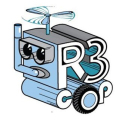 R3-COP
R3-COP
The goal of the robotics project R3-Cop is to create lower cost, cutting edge autonomous robots that can work cooperatively by interconnecting multiple industries that at first glance have very little in common. It is supported by 11 European countries,…
 RGBd, ToF !
RGBd, ToF !
RGBd TOF is a robotics project that is developing a way for robots to have 3D vision. Combining RGB and 3D will allow robots to more easily understand the dimensions of objects. This will bring us one step closer to letting robots function more like humans.
 RoboEarth
RoboEarth
RoboEarth is a project involving European universities and companies like TU Eindhoven and Phillips. The goal is to pave the way for rapid advances in machine cognition and behavior, by developing a world wide web for robots so they can share and learn…
 Robot Techniek Lab Flevoland
Robot Techniek Lab Flevoland
The Robot Techniek Lab is a Dutch robotics project designed to develop children's interest in robotics. They hope to increase the amount of students choosing a technical study by 30%. They will create an advanced robotics center to help achieve this goal.
 Robots that learn to move naturally
Robots that learn to move naturally
The Dutch Technical University of Delft, is working on developing a robotic arm that is a safer choice than traditional factory arms. It will mimic a human arm as closely as possible and have smart elements to optimize its performance.
 Socio-Cognitive Robotics
Socio-Cognitive Robotics
The Socio Cognitive Robots project of the University of Delft studies the interactions between man and machine. The project studies everything from robotic hardware design to cognitive robot control.
 Swarmanoid
Swarmanoid
Comprised of dynamically connected, heterogenous, small autonomous robots, the Swarmanoid project aims at designing, implementing and controlling a novel distributed robotic system.
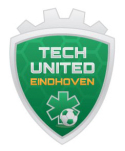 Tech United
Tech United
The University of Eindhoven has a robotics soccer team, Team Tech United, that participates every year in the RoboCup. The team consists of about 80 members, working together to create a winning team. Their goal is to become the world champions every…
 Tulip
Tulip
The Dutch Robotics team developed TUlip, a soccer playing robot. This 1.20 meter tall robot has 14 degrees of freedom and special body armor, making it ideal for soccer. TUlip can function fully autonomously and has special sensors in its feet.
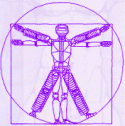 VIACTORS
VIACTORS
The Robotics project Viactors has a goal to develop a robot that can use actuators to function very similar to a human. Because of this project, the idea of having robots do dangerous jobs with the same results might come true in the near future.
 Virtual Slave
Virtual Slave
Virtual Slave software is a Dutch Robotics software project for helping a controller check for possible difficulties before actually creating a robotic arm. The hardware can be linked to simulation software, and virtual tasks can be attempted with a lifelike…
 Zebro
Zebro
Zesbenige robot or Zebro is a Dutch Robotics project introduced by the Technical University of Delft. The robot is designed for educational purposes and the research and development of new control methodologies for complicated robot platforms.
 Delft arm and hand
Delft arm and hand
The Delft Arm and Hand Project aims at developing a three-fingered hand as well as a low-power and safe robotic arm. In addition the Delft Robotics Lab is working on a low-power robotic arm that will have four degrees of freedom.
 Lil'Bot Project
Lil'Bot Project
Lil’bot project by Chris Hakim is a low-cost, open-source robotics project to develop a balancing robot that can be used to introduce children to robot programming. Lil'Bot is easy to program using a visually based programming language and can express…
 Zero Robotics
Zero Robotics
Zero Robotics is a project that organizes an annual robotics programming competition held live aboard the International Space Station. To win, competitors program a SPHERES robot to navigate a microgravity environment while avoiding obstacles, as well…
 Protei Project
Protei Project
The Protei project is a robotics project initiated by Scoutbots, a Hong Kong-based non-profit organization founded by Cesar Harada. The Protei project aims at developing a way of cleaning the oceans using autonomous sailing robots that are able to work…
 Edison
Edison
Robotics project Edison is an attempt to address the shortage of affordable technology resources in mainstream education. The aim of project Edison is to create the easiest and most accessible way for robot enthusiasts and school teachers to get involved…
 ARCAS
ARCAS
The Aerial Robotics Cooperative Assembly System (ARCAS) is a EU funded robotics project that develops autonomous flying robots to perform tasks too dangerous or otherwise difficult for human workers. It will be the first cooperative autonomously flying…
 SUNRISE
SUNRISE
SUNRISE is a robotics project involving the research and development of acoustic based networks to support sub-surface communications and develop autonomous aquatic Swarm robots that can interact and cooperate.
 SmartBot
SmartBot
SmartBot is an innovative cross-border robotics project involving collaborating partners from Germany and The Netherlands, creating a global knowledge hot spot in the field of robotic sensing.
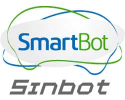 SinBot
SinBot
SInbot is a sub-project of the SmartBot initiative dedicated to exploring the use of intelligent industrial robots in production. Multiple-sensor robots introduce an autonomous function that makes their use more practical and cost effective for smaller…
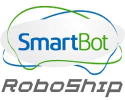 RoboShip
RoboShip
RoboShip is a sub-project of the SmartBot initiative dedicated to exploring the use of intelligent industrial robots in the shipping industry.